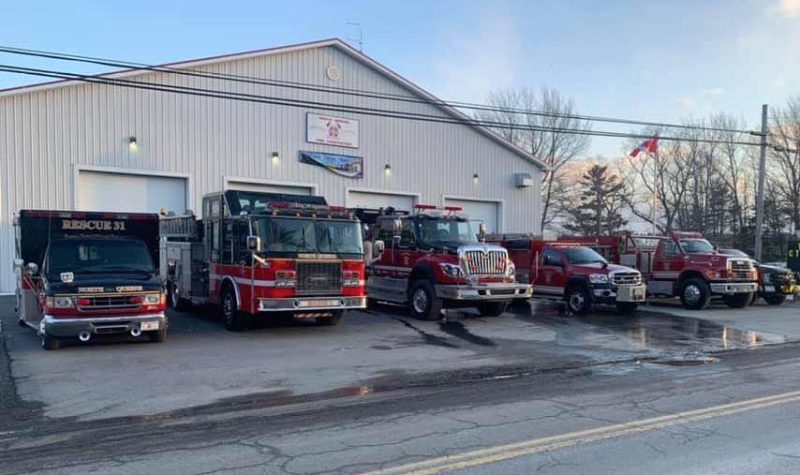Medical first responders (MFRs) in North Queens are being told not to respond to calls because of COVID-19.
The MFRs are volunteer firefighters trained to attend to someone in medical distress until paramedics arrive on scene.
Queens-Shelburne MLA Kim Masland says when someone is having a medical emergency, waiting 40 minutes for an ambulance to arrive from the nearest EHS base in Liverpool is too long.
“If you’re living in Caledonia and you’re in cardiac arrest, the local MFRs can no longer come to you, who actually have an AED on site, there’s no way someone’s going to get to you in time,” said Masland.
In March, the EHS/MFR coordinator told MFRs across the province they could respond only to motor vehicle accidents and to leave emergency calls to EHS paramedics because at the time, there wasn’t enough personal protective equipment to go around.
A spokesperson for Emergency Health Services says since COVID-19 restrictions have started to ease up, they have been bringing MFRs back online in 21 areas with high incidents of cardiac arrests.
Already, 11 have received the training around proper use of the new personal protective equipment and are currently operating.
The other ten are slated to return to service in the coming weeks but unfortunately, none of those are in the Western Zone servicing North Queens.
The EHS spokesperson says the North Queens MFR agency is one of the more remote agencies in the province and is also scheduled to receive training in the coming weeks.
Masland is concerned about what could happen if an ambulance can’t get to the area in time.
“We’re so rural, we’re so geographically isolated and if I’m getting text messages saying on a Saturday morning at 11:55 there’s not an ambulance to be seen from Barrington to Halifax, that’s very, very frightening,” said Masland.
North Queens Fire Chief Chris Wolfe says the community has always relied on the department as medical responders and as fire fighters.
He’s frustrated they’re being left in the dark as to why the department is no longer being dispatched for medical emergencies.
“Every time I see somebody in Caledonia they’re saying, why aren’t you guys answering medical calls? So and so had this problem the other night and you guys weren’t there,” said Wolfe. “To me, if EHS is not going to allow us to do this they should be making it more publicly aware and giving briefings to the public on what’s taking place, why we’re not responding.”
Wolfe is well aware of the strain on the province’s ambulance system.
He has been writing to government officials for the past three years to explain the dire situation residents in North Queens can face when looking for emergency medical help.
“It’s an ongoing problem and the province doesn’t seem to see that there is a problem. I’m to the point myself, that I can’t write no more or talk no more to change anything so, where do you go, right? It’s one of them things that a little town fire chief like me isn’t going to be able to fix ‘cause there’s too many people above me that make the decisions,” said Wolfe.
The president of Local 727 of the International Union of Operating Engineers, the union representing paramedics in Nova Scotia, says the EHS system in Nova Scotia is in chaos as it struggles to fill shifts and reduce offloading time for patients at hospitals.
Michael Nickerson says it’s helpful to have MFRs to service remote areas before his members arrive.
“They can provide oxygen therapy and get vital signs and treat fractures, like, splint fractures and dress wounds, bandage and whatnot,” said Nickerson. “So, they are a great, great asset.”
Nickerson says his members have been warning the province since before the COVID-19 outbreak that the pre-hospital system in Nova Scotia is not working.
The health department took those concerns to heart when they commissioned a $145,000 report by Fitch and Associates in October 2018 to review the ambulance system across the province.
The province received the report in December of that year, but Nickerson says despite repeated requests by IUOE 727, they still have not released the results.
“I don’t understand why they’re not putting it out there. They’re saying because, you know, negotiations and whatnot. Our contract’s settled, so they can’t use that as an excuse. They need to put that report out and let us see what’s in it. I’m sure there’s recommendations in there to make the system better than it is right now,” said Nickerson.
Health department spokesperson Marla MacInnis said they are currently in negotiations with Emergency Medical Care Incorporated, the company contracted by the province to provide paramedic services.
She says while the paramedics working under EMCI have a contract in place, the contract with the supplier (ECMI) is still being negotiated and releasing the Fitch report could put the province at a disadvantage.
Back in Queens, Kim Masland says now that the province has the personal protective equipment in place the focus should be on getting the medical first responders trained, and back in action.
“So let’s get our agencies back in the saddle,” said Masland. “Let’s get them doing what they do best in our communities.”


